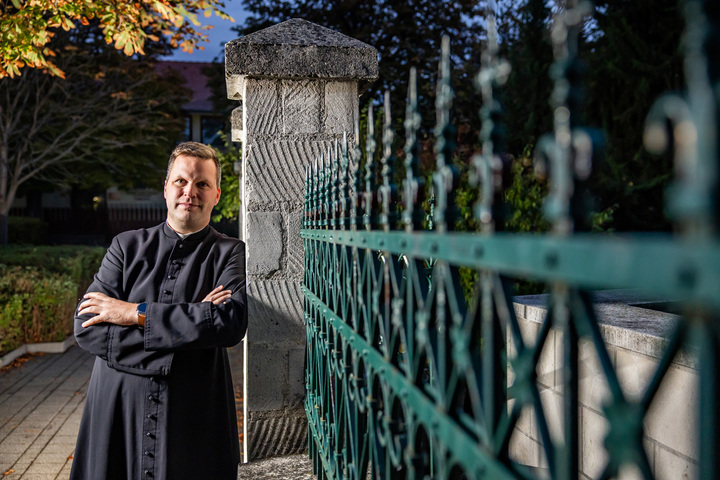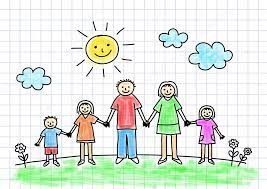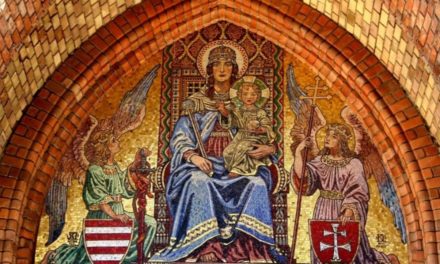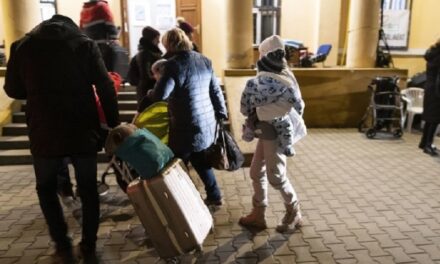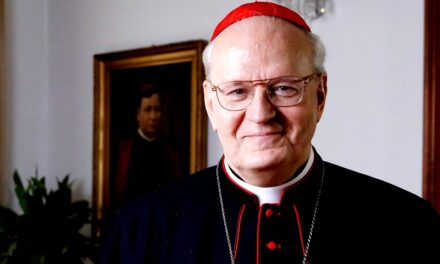Based on the census data, countless bleak and damning analyzes have come to light in recent weeks. However, according to Father Gergő Bese, we have every reason to be optimistic, the Christian churches are experiencing a period of grace in Hungary, we are in the middle of a healing process, and the fruits of the invested work will soon be seen in the life of society. Interview with the best-known "influenza priest" in our country.
At the last census, one million fewer people declared themselves Catholic than before. Was the church unable to address the faithful, had it lost its appeal?
The explanation is multiple. Since 2010, the country has experienced strong economic growth, and the expanding middle class follows Western patterns, more precisely, the social processes taking place in the West do not leave Hungary untouched either. Secularization cannot be stopped at the border. And it must be taken into account that the values of the Catholic Church relate to the modern world as if we were driving at full throttle against the traffic on the highway.
He's rolling his eyes at social media, Netflix, and the media in general. We cannot stop the negative effects that affect Christian societies on the continent, or have already destroyed them in Western Europe, at Lajta.
In addition, according to the practical approach, the compilation of the questionnaire was also flawed. During the electronic survey, it was mandatory to answer how many toilets there are in the house, but the question about religious affiliation could be omitted. For the less committed, this meant that the issue did not need to be addressed.
In a world where the attention span of a 30-40 second TikTok video is fixed, a 15 minute survey is doomed.
Such a survey would give an almost accurate picture if it were mandatory to answer all questions. Despite the pessimistic and damning voices, we can still be proud of our church. There are two million Catholics in Hungary who, despite the pressure of the world and the attacks on our culture, accepted their membership of the church. In the meantime, many positive images of the functioning of Christian churches are reflected. In Lenn, on the front lines, where I also serve, I see the results of the increase. That which is difficult to quantify.
The one million indifferent, however, tells us that a significant proportion of Hungarians have worn out their adherence to Christian identity.
Let's not be too strict. We are in the middle of a healing process. Part of which is that we need to enlighten society.
Let's ask ourselves whether Hungarian education became better when the state persecuted the churchmen who operated two-thirds of the schools in the 1950s, loaded them onto a truck and took the priests to Recsk. Have our high schools and primary schools become better because the sisters and fathers were dragged away or kicked out? Did the Hungarian healthcare system get better when the nursing nurses were chased away and imprisoned?
I think all readers know the answer. Structures damaged during decades of church persecution cannot be fixed in four cycles. Consider that it was only in 2013 that the government had enough courage or strength to introduce religious and moral education in public schools. Once a week, for 45 minutes, you can freely talk about your faith at school, this was an incredibly big step. I serve in three villages, which have a total of four schools. I teach in all four institutions, I am present as a member of the faculty. This is a huge thing. If one of the teachers has a problem, he addresses me, he turns to me with confidence, because we have a live relationship.
The ties between the church and the faithful, which were severed by force, are slowly being revived.
Of course, the process is still in its infancy. However, the generation that attended religion classes for eight years is slowly growing up, and the one that remembers Good Friday, not the monument, from the roadside cross. The official communication of the state also helps a lot. They wish for a blessed preparation in Advent, blessed, peaceful holidays and unpleasant holidays, they talk about the state and people of St. István in the official communiqués. The current numbers therefore largely reflect the conditions before the 2010 revolution, the dropout was inevitable.
So is there reason to be hopeful? Are you optimistic about the future of the Hungarian Catholic Church?
How can I be optimistic. In 2010, six percent of our educational institutions were religious, now 18 percent. The immersion can be even greater, every city has a church institution. Parents can choose between church and secular education, while we see competition for admission to church schools. I am sure that anyone who attends a church school will have something of their spirituality attached to it. Even if he comes from an otherwise religiously indifferent family background. If there is a good faculty - and we also train our teachers - then we have reason to be confident. A lot of children who graduated from church schools are appearing on the labor market these days. Lawyers, economists, politicians, teachers, doctors, handymen.
We are present in all areas of social life, and our children are present.
I worked in vocational training, I saw the results. In the case of a house renovation, it does not matter what kind of spirit the craftsman was brought up in. I dare to risk that trust between two Christians who practice their religion seriously is also different in such situations. Coming from the same cultural milieu means a special bond.
I heard from a pastor recently that the responsibility of priests is huge in these times when the activities of the church are supported. Success must now be achieved in the spiritual renewal of society.
I think it's a team effort. The state of the church does not depend only on the priests, the clergy cannot build a Christian society, it also requires the active participation of the faithful. Besides, there are fewer and fewer of us priests. Lay people play an increasingly important role in shaping our communities. It is necessary to find the roles in which the lay faithful must come to the fore, and those that require the cooperation of the clergy. For example, lay believers who live in sacramental marriage, raise children, are practicing Christians, experience difficulties, but also struggle with them should speak about family life, solving the problems of the marital relationship, and raising children.
They are not saints either, but they speak more authentically on certain issues in the eyes of the people than a priest. Evangelization is the task of all of us. Both within family, friendship and collegial relationships. The big question is what will happen to our young people. Because it is increasingly difficult to break through indifference. Unfortunately, the young person who sits with the phone in his hand for 4-5 hours is not interested in archery or folk dance, he will not become a scout. This is the case even if you have otherwise received a religious upbringing.
Do young people still have spiritual openness?
From the moment we are created, we all have the desire for the transcendent. This is a basic premise. However, the young man always rebelled. Against the ruling order, against tradition. And we fail to show that he is in a good place here in his rebellion. At that time, many people grope towards Eastern teachings, Buddhism and other trends. It should be noted that the marketing activities of sects and small churches are very effective, better than that of the Catholic Church. The Krishna-conscious believer meets us in the IKEA parking lot and kindly invites us to a conversation. They invest money and energy to convince people. The Catholic Church has something to learn, as a two-thousand-year-old institution, it is difficult to move away from the norm, but it will have to. It is necessary to have quality communication, to operate quality news portals, to be present on social media, and to respond to even the slightest disturbance. We have something to say to young people, but we don't use the channels leading to them.
What prevents the church from communicating well and effectively?
It must be seen that an unprecedented distance has developed between the generations in today's society. What has been created in the last 70 years is terribly alien to the Hungarian family model. Long ago, the boy married the girl, took his wife home, and three generations lived together, and in the family the word of the grandparents was decisive. They could learn from each other and there was an order to life. The grandmother raised the child, taught him to pray.
Communism came and shattered everything. Today, the generation of parents, grandparents and grandchildren no longer understand each other. Many times they don't even understand the words that younger people use. There has never been such a gap between the generation in their twenties and their seventies.
And the old ones are written off. In the church, the bishops are our grandparents, but the social order has survived, the word of the elderly bishop is decisive. But the elderly in the church do not understand the younger ones in the same way as in secular families. They decide whether to make an official TikTok page, pay communication people, or spend energy on social media. However, it is difficult to incorporate modern media tools into our lives. They fear that we will become the target of attacks, they write bad things about us, caricature us.
Father Hodász particularly rejected these initiatives. After the fall of András, the older bishops mentioned as an example that in order to avoid such situations, we should stay away from the excessive use of social media.
I am lucky in that my consecrating archbishop feels that speaking out on social platforms is just as important as I do, so he helps and supports my work in this direction. You have to go out among the people, you have to do missions where the people are. Our place is not in the catacombs, but in the light of day to lend a hand to people.
The faithful also have a responsibility in the mission, who, by virtue of their vocation, reach many people. Should they take over Christian marketing?
It would be very important for the baker, the butcher, and the journalist to confess their faith. You can display the cross in a bakery, and you can display a statue of St. Christopher in a car showroom. These symbols express who we really are. I always call the beekeepers on the feast of St. Ambrose, and the brandy brewers on St. Nicholas, to consecrate their port. Give thanks for the knowledge with which the Most High has blessed them. Those who have received more should stand up and confess that they received their talents from God. Artists, media personalities, intellectuals. Even when we know that anyone who confesses God will be crushed by the enemies of the church.
What about Gabi Tóth?
The problem was that right before the outbreak of the scandal, he voiced his Christian, family-protecting beliefs, while he could already be involved in the crime. He should have drawn the right conclusions. He should have stood up, admitted that he had failed, clarified the situation, left no doubt. Unfortunately, he gave the enemies of the church an opportunity to use his stumble to invalidate everything he believed in. However, no one has the right to doubt Gabi Tóth's sincere faith. The reality is that we belong to Christ despite our sins.
Featured image: Tibor Vermes/Demokrata

